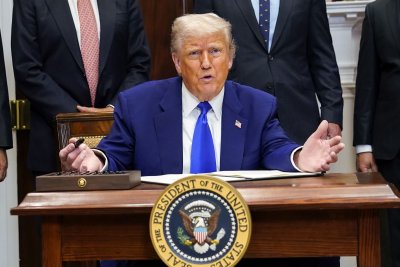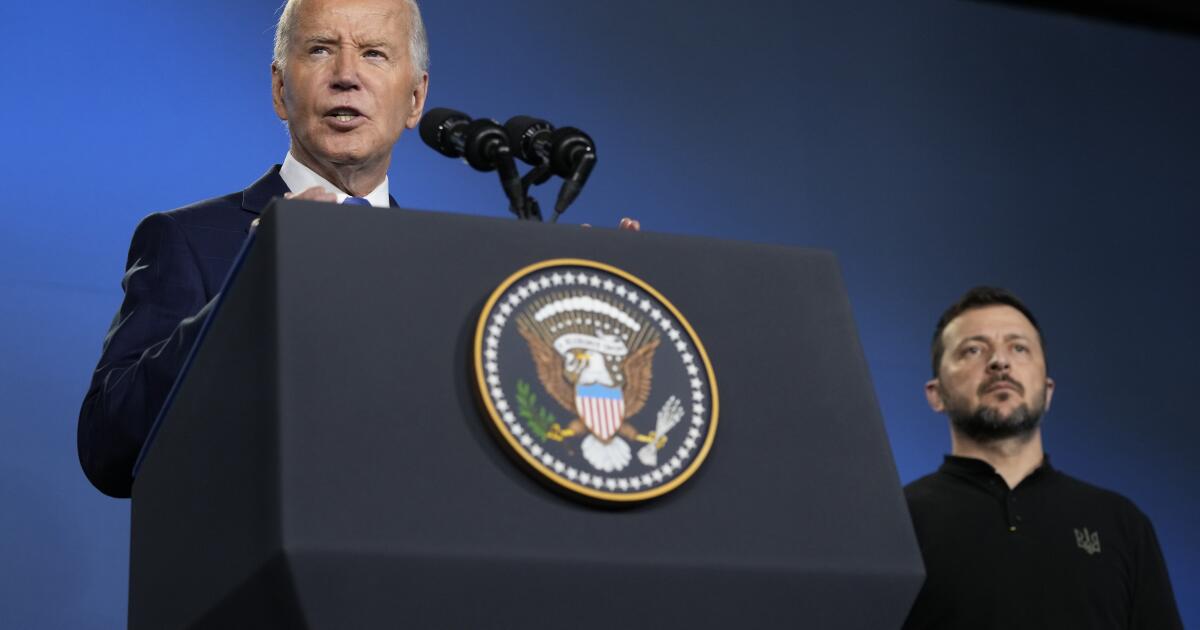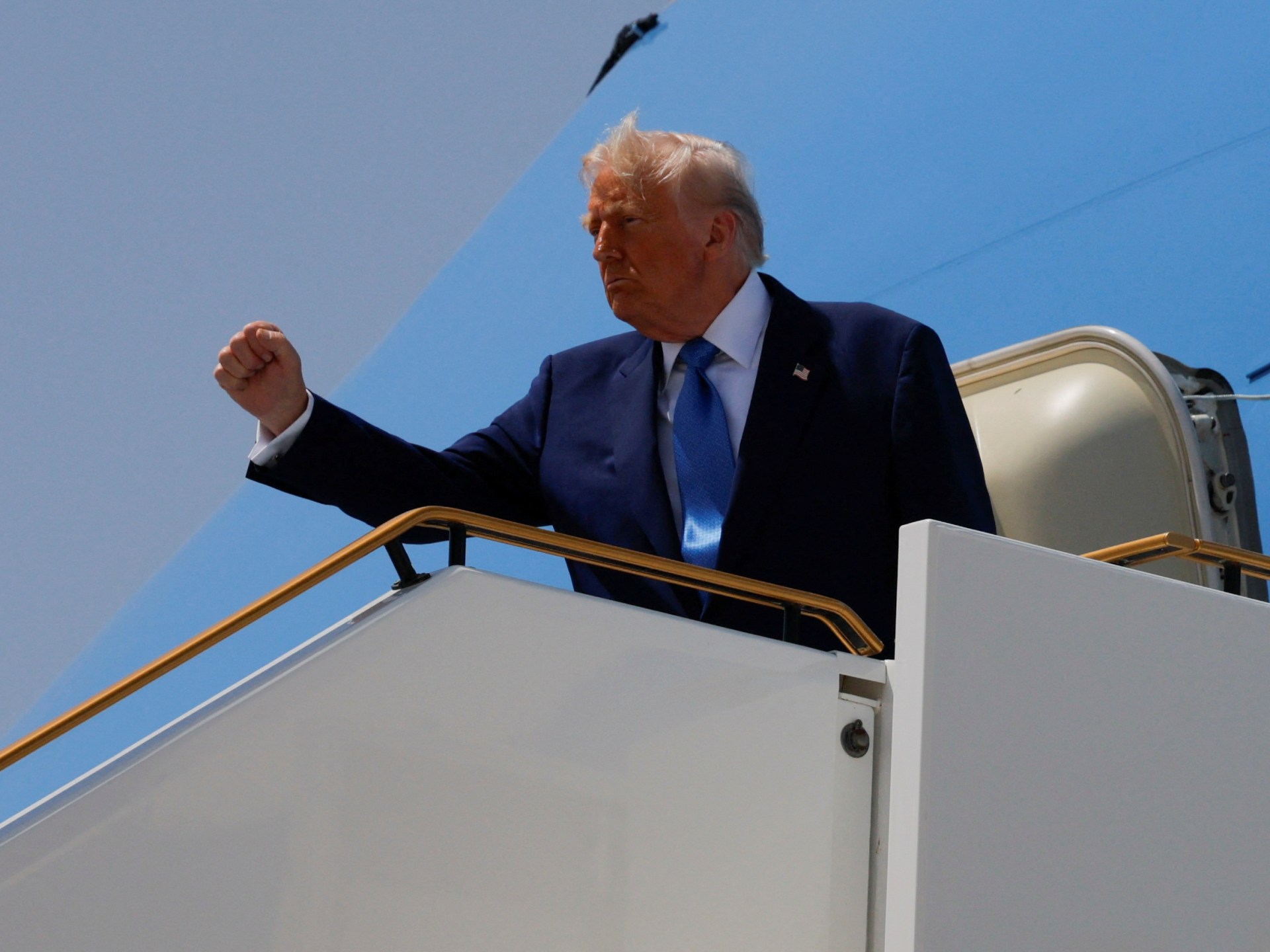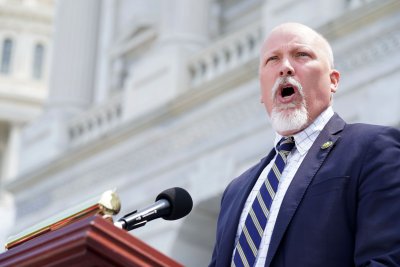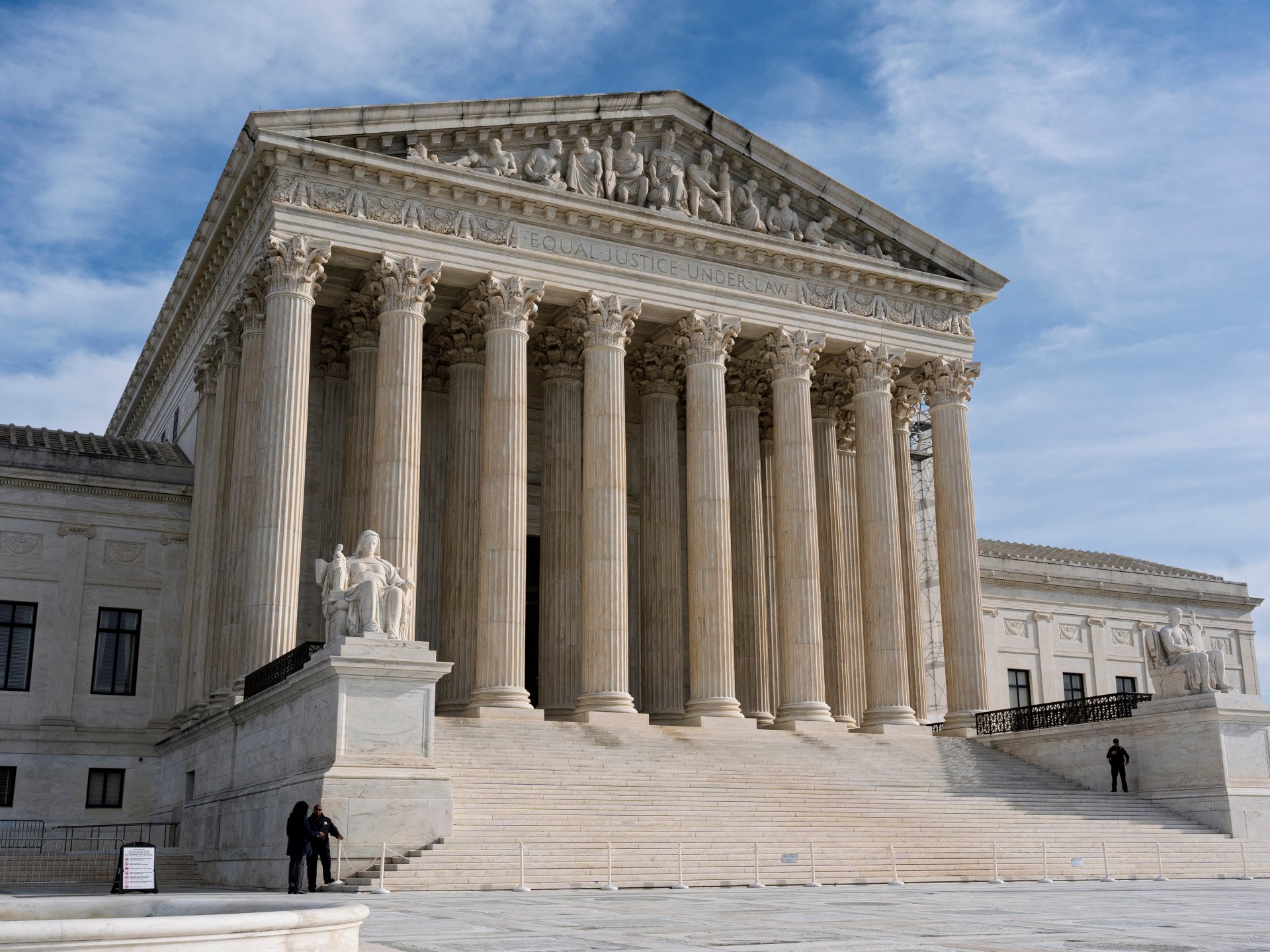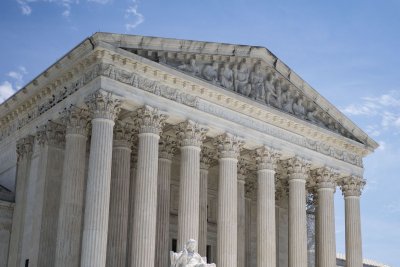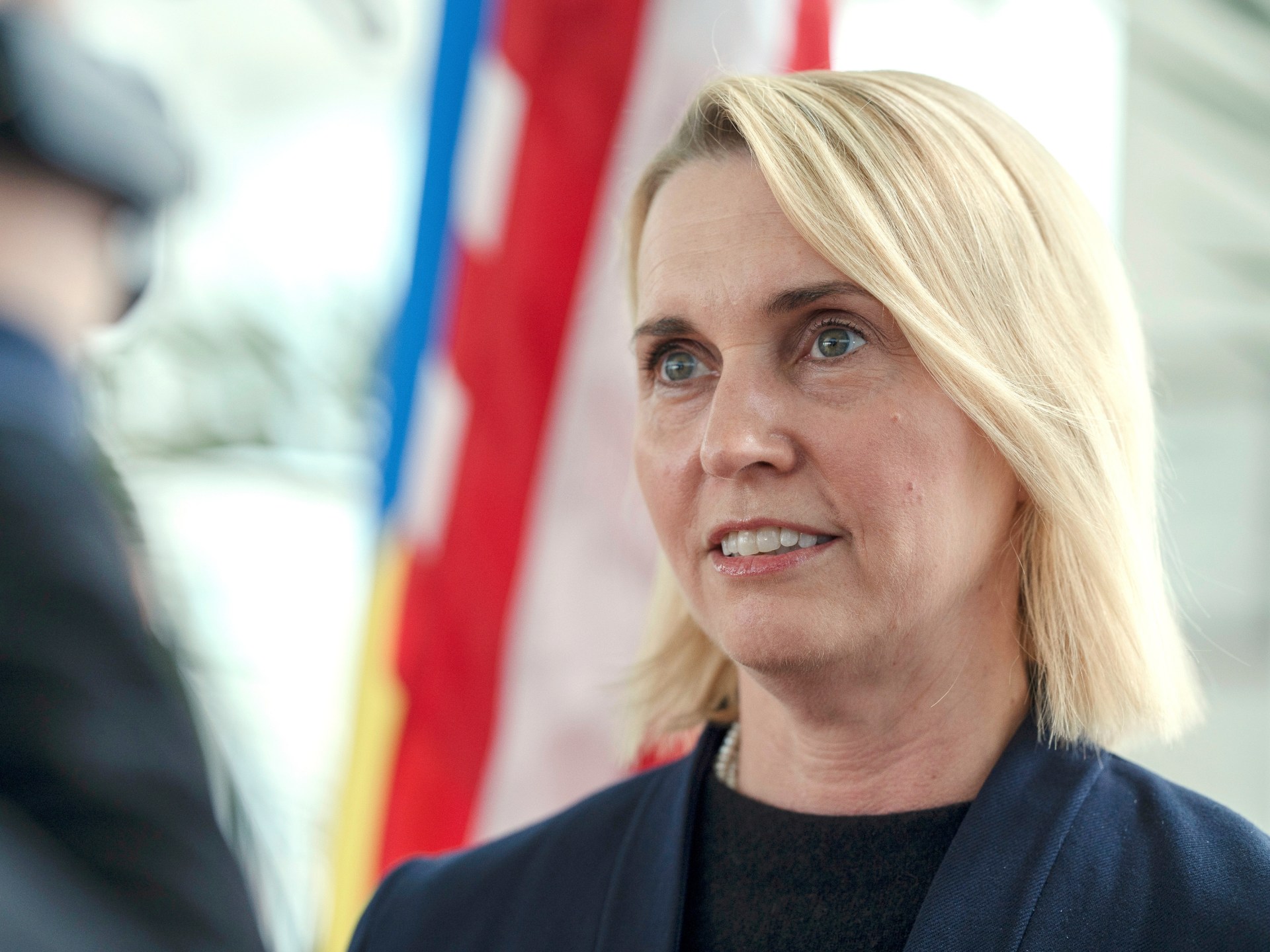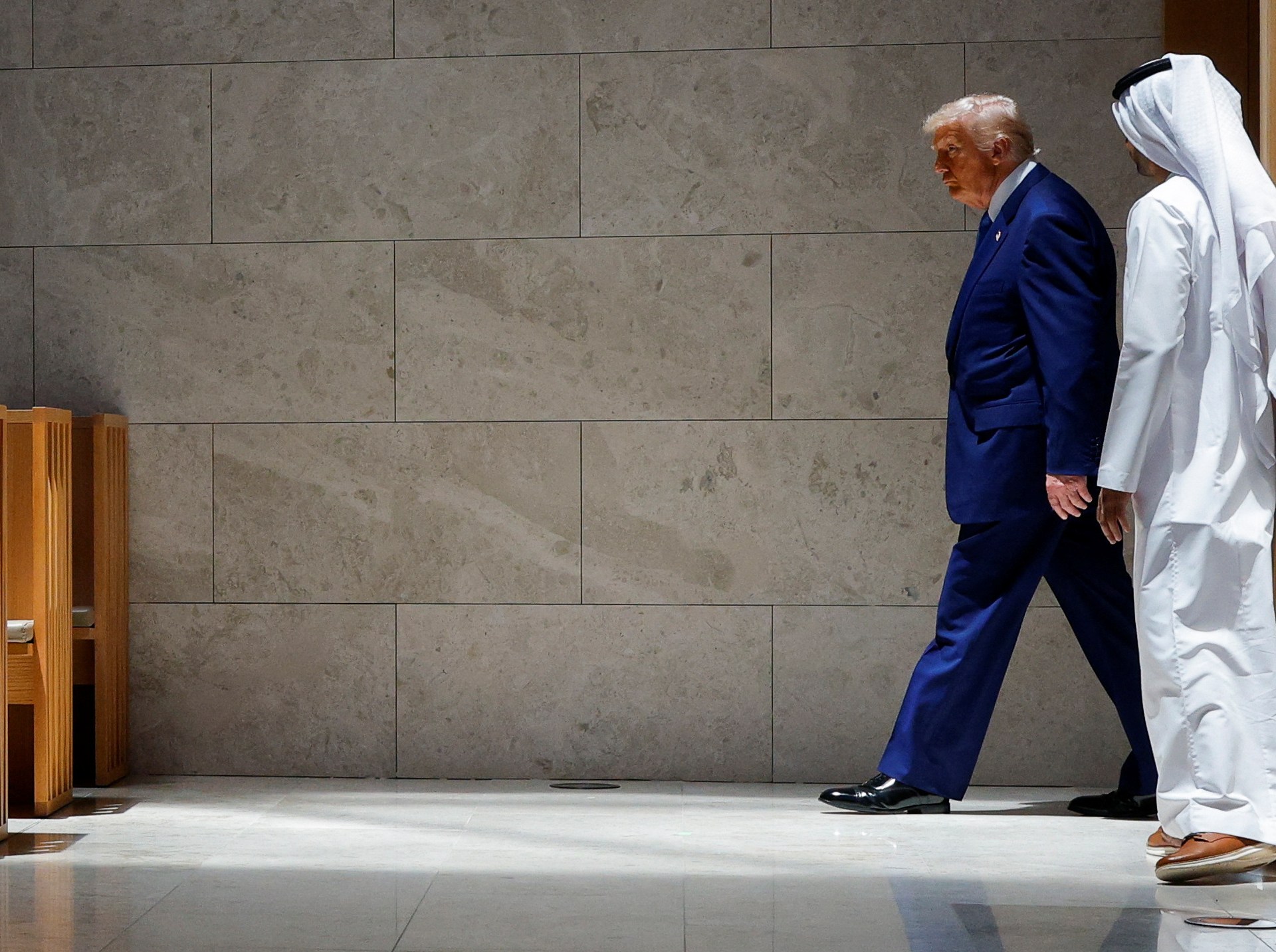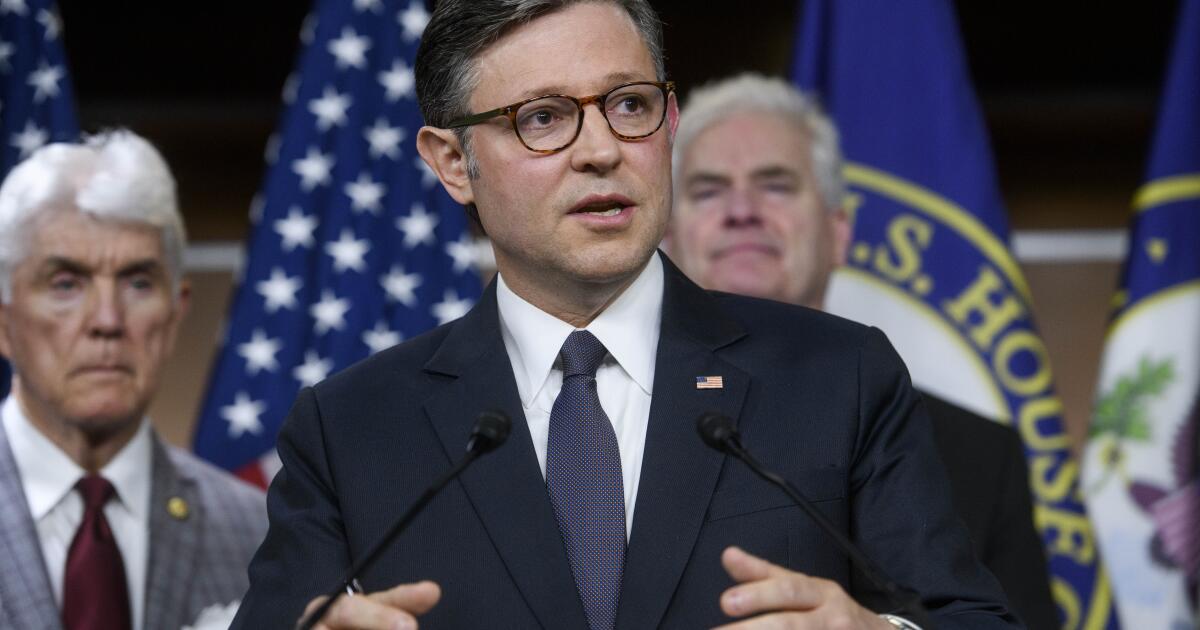Newsom says bailing L.A. out of budget crisis is ‘nonstarter.’ Bass remains hopeful
For anybody confused about whether Gov. Gavin Newsom planned to come to Los Angeles’ rescue Wednesday when he announced his May revision to the state budget, a clue could be found on the front page of his spending plan.
In an AI-generated image, the budget cover page featured the Golden Gate Bridge and the San Francisco skyline, along with office workers who appear to be chatting it up in a forest glade next to an electric vehicle charging station. Not a hint of Los Angeles was anywhere to be seen.
Deeper in the budget proposal, no salvation was found for L.A. And at a news conference Wednesday, Newsom said flatly that he did not plan to provide cash to help dig the city out of its budget hole. The city is facing a $1-billion shortfall due to inflated personnel costs, higher than ever liability lawsuit payouts and below-expected revenues.
“The state’s not in a position to write a check,” Newsom said. “When you’re requesting things that have nothing to do with disaster recovery, that’s a nonstarter … I don’t need to highlight examples of requests from the city and county that were not related to disaster recovery and this state is not in a position, never have been, even in other times, to address those requests, particularly at this time.”
The governor’s rejection of Mayor Karen Bass’ pleas for state aid came as he discussed the state’s own economic woes. The state is confronting a $12-billion budget deficit in part due to a “Trump Slump,” Newsom said. The governor had to make cuts to his own signature program offering healthcare to immigrants without proper documentation.
Los Angeles Mayor Karen Bass delivers her State of the City address at L.A. City Hall on April 21.
(Carlin Stiehl/Los Angeles Times)
The governor made sure to remind reporters Wednesday that the state had been more than willing to help with fire recovery efforts, but said that was the limit of its generosity. Newsom said that of the $2.5 billion offered to Los Angeles after the fires, more than $1 billion remained unused. That funding helped with emergency response and initial recovery from the January wildfires.
Despite Newsom’s edict, Bass didn’t appear ready to throw in the towel. She said she and the governor were “in sync” and in regular contact about the situation. State money to help with the budget crisis would be fire-recovery-related, Bass insisted.
“We had to spend a great deal of money of our general fund related to the wildfires. If we are able to get that reimbursed that relieves some of the pressure from the general fund,” Bass said in an interview with The Times. “We submitted a document to him where we are asking him if the state would be willing to give us the money up front that FEMA will reimburse — so we are requesting 100% fire-related.”
Bass visited Sacramento in March and April. She and L.A. legislators first requested $1.893 billion in state aid to help with the budget crisis and disaster recovery. The mayor has since pared down the request, but the amount she is now requesting is not public.
In the initial request, they asked for $638 million for “protecting city services under budgetary strain.” That request is likely dead. But the $301-million request for “a loan to support disaster recovery expenses pending FEMA reimbursement” still stands.
Bass said she most recently met with the governor two weeks ago, and he informed the mayor that the state’s financial situation was not looking good.
The revision is just a starting point for final budgetary negotiations between the governor and the Legislature, and the state budget won’t be completed until at least mid-June, weeks after the deadline for the City Council to approve its own budget.
“We have 36 members of the L.A. delegation fighting for the city and we’ll just have to wait and see what happens in June,” said Assemblymember Tina McKinnor, who chairs the Los Angeles County Legislative Delegation.
McKinnor said she is confident that the state budget will have money not just for fire recovery, but also to help the city manage its broader financial woes.
“We will not fail L.A.,” McKinnor said.
With the state lifeline in serious doubt, the cuts the city will have to make to balance its budget took another step toward reality.
While Bass is still hopeful for state aid, the council seemed less hopeful.
“We expected and planned for this outcome, but that doesn’t make it any less frustrating. The governor’s decision to withhold support from California’s largest city after we experienced the most devastating natural disaster in the state’s history is a serious mistake, with consequences for both our long-term recovery and the strength of the state’s economy,” said Katy Yaroslavsky, who chairs the council’s budget committee.
“This will not be a ‘no-layoff’ budget,” Yaroslavsky said on May 8 at a budget hearing.
Bass stressed that she is still trying to avoid any layoffs. The city plans to avert further layoffs by transferring employees to the proprietary departments, like the harbor, the airport and perhaps the Department of Water & Power.
“We’re all working very, very hard with the same goal in mind and that is having a balanced, responsible budget that avoids laying off city workers,” she said Thursday.
Newsletter
You’re reading the L.A. on the Record newsletter
Sign up to make sense of the often unexplained world of L.A. politics.
You may occasionally receive promotional content from the Los Angeles Times.
State of play
— MOURNING ONE OF CITY HALL’S OWN: Former chief of staff to Councilmember Kevin de León and longtime L.A. politico Jennifer Barraza Mendoza died Tuesday at 37 following a long battle with cancer. Barraza Mendoza began her career organizing with SEIU Local 99, helped lead De León’s Senate campaign and also served as a principal at Hilltop Public Solutions, among other roles. “In a political world of shapeshifters, she stood out as fiercely loyal and guided by principle,” De León said in a statement. “She never sought the spotlight — but when tested, she rose with unmatched strength to protect her team, her community, and what she knew was right.”
— MINIMUM WAGE WAR: The City Council voted Wednesday for a sweeping package of minimum wage increases for hotel workers and employees of companies at Los Angeles International Airport. One hotel executive said the proposal, which would take the wage to $30 in July 2028, would kill his company’s plan for a new 395-room hotel tower in Universal City. Other hotel companies predicted they would scale back or shutter their restaurant operations. The hotel workers’ union countered by saying business groups have made similar warnings in the past, only to be proved wrong.
— SECOND TIME’S A CHARM: Surprise! On Friday, the City Council had to schedule a do-over vote on its tourism wage proposal. That vote, called as part of a special noon meeting, came two days after City Atty. Hydee Feldstein Soto’s office warned that Wednesday’s vote had the potential to violate the city’s public meeting law.
Los Angeles Councilwoman Eunisses Hernandez in December in Los Angeles.
(Genaro Molina/Los Angeles Times)
— READY TO RELAUNCH: Councilmember Eunisses Hernandez plans to host her campaign kickoff event for her reelection bid Saturday in Highland Park, where she was born and raised. She already has a few competitors in the race, including Raul Claros, who used to serve on the Affordable Housing Commission, and Sylvia Robledo, a former council aide.
The left-wing councilmember has already won the endorsements of Council President Marqueece Harris-Dawson and from colleagues Heather Hutt, Ysabel Jurado, Hugo Soto-Martinez and Nithya Raman. Controller Kenneth Mejia also endorsed her.
— PHOTO BOMB: Recently pictured with Eunisses Hernandez: Political consultant Rick Jacobs — the former senior aide to then-Mayor Eric Garcetti who was accused of sexual harassment. Jacobs now works as a consultant for the politically powerful Southwest Regional Council of Carpenters. Per a post on Jacobs’ LinkedIn, Hernandez posed for a photo this week with Jacobs and several union members while presenting the group with a city certificate of recognition.
Jacobs has denied the harassment allegations, but the scandal bedeviled Garcetti in his final years in office and nearly derailed his ambassadorship to India. Jacobs has remained in the political mix — some may remember his controversial appearance at Bass’ exclusive 2022 post-inauguration Getty House afterparty. Also worth noting: The Carpenters are major players in local elections, and their PAC spent nearly $150,000 supporting Hernandez’s then-opponent Gil Cedillo in the 2022 election.
“Councilmember Hernandez was proud to stand with the carpenters who built the little library at North East New Beginnings, the first-of-its-kind interim housing site she opened in 2024. She was there to honor their craftsmanship and community contribution — nothing more. She did not choose who else appeared in the photo,” said Naomi Villagomez Roochnik, a spokesperson for Hernandez.
— PARK GETS AN OPPONENT: Public Counsel attorney Faizah Malik is challenging Councilmember Traci Park from the left, the tenants rights lawyer announced Thursday. Malik is styling her campaign in the mold of prior progressive incumbent ousters, she said, though she has yet to garner any of their endorsements. But she did get an Instagram signal boost from former CD 11 Councilmember Mike Bonin, who characterized her as “A Westside leader who will fight for YOU and your family.” Meanwhile, centrist group Thrive LA had a fundraiser for Park this week, and declared her its first endorsement of the 2026 cycle.
— FIREFIGHT: Active and retired firefighters blasted the council’s recommendation to nix 42 “Emergency Incident Technicians,” who help develop firefighting strategy and account for firefighters during blazes. In a letter to the council, the firefighters said the 1998 death of firefighter Joseph Dupee was linked to removal of EITs during a previous budget crisis.
“Please do not repeat the same mistake that was made in 1998 when EITs were removed and said removal was found to be a contributing factor in the death of LAFD Captain Joseph Dupee,” the firefighters wrote.
— EMPLOYMENT LAW AND ORDER: Some LAPD officers are hitting the jackpot on what are known as “LAPD lottery” cases. The city has paid out nearly $70 million over the last three years to officers who have sued the department after alleging they were the victims of sexual harassment, racial discrimination or retaliation against whistleblowers.
The massive payouts are not helping the city’s coffers. One of the leading causes of the current fiscal crisis is the ballooning liability payments that the city makes in settlements and jury verdicts.
— WATER OLYMPICS: L.A. County’s plan to run a water taxi between Long Beach and San Pedro during the Olympics paddled forward this week. Supervisor Janice Hahn introduced a motion, with co-author Mayor Bass, to launch a feasibility study assessing ridership demand, cost and possible routes.
“[The water taxi] would give residents, workers and tourists an affordable alternative to driving and parking at these Games venues,” Hahn said.
— ROBO-PERMIT: City and county residents submitting plans to rebuild their burned down properties could have their first interaction with an AI bot who would inspect their plans before a human. Wildfire recovery foundations purchased the AI permitting software, developed by Australian tech firm Archistar, and donated it to the city and county. The tech was largely paid for by Steadfast L.A., Rick Caruso’s nonprofit.
— TRUMP’S VETS MOVE: President Trump signed an executive order calling on the Department of Veterans Affairs to house up to 6,000 homeless veterans on its West Los Angeles campus, but even promoters of the idea are skeptical of the commander in chief’s follow-through.
“If this had come from any other president, I’d pop the Champagne,” said Rep. Brad Sherman (D-Sherman Oaks), whose district includes the West Los Angeles campus. Trump, he said, follows up on “like one out of 10 things that he announces. You just never know which one. You never know to what extent.”
— ADDRESSING THE ELEPHANTS IN THE ROOM: A Los Angeles County Superior Court judge denied a motion for a temporary restraining order Thursday that sought to stop the L.A. Zoo from transferring elephants Tina and Billy to the Tulsa Zoo. The judge said the decision was out of the court’s purview. The zoo said Thursday that the “difficult decision” to relocate the pachyderms was made with the “care and well being” of the animals at top of mind.
“Activist agendas and protests are rightfully not a consideration in decisions that impact animal care,” the statement said.
— CHARTER SQUABBLE: Bass made her four appointments to the Charter Reform Commission this week. She selected Raymond Meza, Melinda Murray, Christina Sanchez and Robert Lewis to serve as commissioners. She also named Justin Ramirez as the executive director of the commission. Bass’s appointments came on the heels of reform advocate Rob Quan sending out mailers about the mayor’s delay in making appointments, which left the commission unable to get to work.
“Karen Bass wasted eight months. That was when her appointments were due. Eight months ago,” Quan said in an interview.
— WORKDAY TROUBLE: The Department of Water and Power is slated to adopt a new human resources software, Workday, in mid-June. But Gus Corona, business manager of IBEW Local 18, warned of “serious concerns” and the potential for “widespread problems and administrative chaos.” In a letter this week to DWP CEO Janisse Quiñones, which The Times obtained, Corona said there was a “consistent lack of clarity” about the new system, especially around union dues and benefit deductions, retroactive pay and cost of living adjustments. “The level of uncertainty so close to a planned launch date is deeply troubling,” Corona wrote.
Quick Hits
- Where is Inside Safe? The mayor’s signature homelessness program went to Councilmember Curren Price’s district: 37th Street and Flower Street, according to the mayor’s office.
- On the docket for next week: The full City Council is scheduled to take up the proposed city budget for 2025-26 — and the mayor’s proposal for city employee layoffs — on Thursday.
Stay in touch
That’s it for this week! Send your questions, comments and gossip to [email protected]. Did a friend forward you this email? Sign up here to get it in your inbox every Saturday morning.



